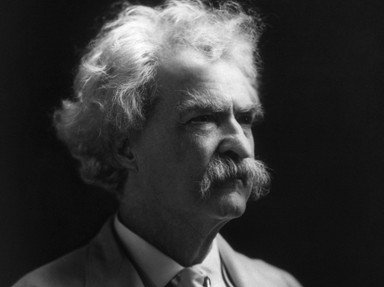Quiz Answer Key and Fun Facts
1. What does the Warwick Castle tour guide offer as the most likely explanation for the bullet hole in Sir Sagramore's armour?
2. Which work did Twain use as his main source for the numerous tedious tales of knightly deeds in the book, sometimes quoting whole chunks verbatim?
3. After becoming the second most powerful man in the land after his "miracle" with the eclipse, Hank is supplied with every luxury that the kingdom knows of, but he isn't happy. He misses many 19th century comforts - sugar, coffee, tea, tobacco, a telephone - but in his diary what does he complain about the absence of the most?
4. What service does Hank seek to render future generations of music lovers during his stay at the court of Morgan le Fay?
5. When Hank and Sandy finally arrive at the ogres' castle that is the aim of their quest, ready to free the forty-five captive princesses from their monstrous four-armed one-eyed captors, what does Hank find waiting for him?
6. What does Hank use as magic words in his powerful spell to drive the "demon" out of the Holy Fountain and make the waters flow again?
7. What, according to Hank, do a spiritualist medium's miracles, a magician's miracles and many religious miracles all have in common?
8. How did Hank first manage to discredit the rival magician he met in the Valley of Holiness, who claimed to be able to see what anyone else in the world was doing at any time?
9. Hank needed to find occupations to keep the nobility contented once he had finally overthrown the established order. Which two jobs did he find particularly well suited to them?
10. What name did Sandy give to the first child that she has with Hank, based on words she has heard Hank murmuring in his sleep?
Source: Author
solan_goose
This quiz was reviewed by FunTrivia editor
looney_tunes before going online.
Any errors found in FunTrivia content are routinely corrected through our feedback system.

